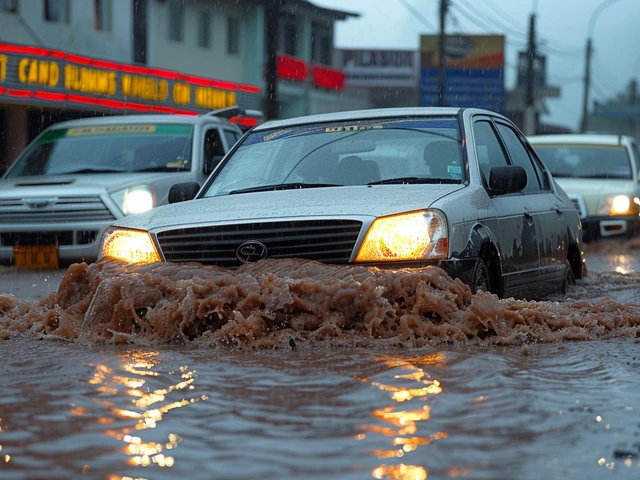Introduction to the Crisis
The Kenyan government, making a crucial decision in the wake of severe weather conditions, has postponed the reopening of schools nationwide. Initially scheduled to resume earlier, schools are now slated to reopen on May 6, 2024. This decision comes as a direct response to the destructive floods that have wreaked havoc across various regions of Kenya, impacting infrastructure critically, including educational facilities.
Impact of Flooding on Educational Facilities
Substantial rainfall and accompanying flooding have left a trail of destruction in their wake, not least on the educational sector. Ezekiel Machogu, the Education Cabinet Secretary, emphasized the significant risk involved in conducting classes amidst these challenging conditions. Reports indicate that several educational institutions, from primary schools to high school levels, have sustained extensive damage. Structures are weakened, learning materials destroyed, and access roads to schools cut off by water, making them impassable. The safety of students, educators, and school staff is paramount, thus dictating this postponement.
Government and Community Responses
The decision was also reinforced by calls from community leaders and the National Parents Association, acknowledging the perilous conditions that the floods had created. Eskimos Kobia, Secretary General of the National Parents Association, highlighted in discussions the critical nature of the impact, noting that tens of schools are unusable in their current state. These advocates for students’ welfare have pushed for a review of the affected sites, aiming to ensure that every child and teacher will be in a safe environment once schools resume.
Further Meteorological Concerns
The Kenyan Meteorological Department has issued warnings indicating the likelihood of continued adverse weather conditions. More intense rainfall is expected, which could exacerbate the already dire situation. The proactive delay by the government is also seen as a measure to brace for more possible impacts that could further affect the recovery process of the educational institutions.
Impact on the Community and Future Preventive Measures
Communities across Kenya are bracing for the impact of this delay. Education plays a central role in the development of the society and disruptions of this magnitude can have rippling effects on students’ learning progression and future opportunities. To mitigate such disruptions, there needs to be significant planning and investment in infrastructure that is resilient to such climatic events. This involves constructing school buildings with materials capable of withstanding harsh weather conditions, and possibly rethinking the location of schools prone to flooding.
The current situation also underscores the need for effective emergency response strategies and enhanced communication channels between the government, schools, and parents to manage such crises effectively. Ensuring that there are contingency plans for continuity of education during emergencies will be crucial, alongside regular safety audits of school infrastructures.
Conclusion
The delay in reopening schools, while presenting immediate challenges, also opens up discourse on the steps Kenya must take to buffer its educational system from natural catastrophes. It’s a call to action for improved strategic planning and investment in making education both accessible and safe under any conditions. As the country deals with the current crisis, the lessons learned will be invaluable in shaping a more resilient educational landscape for future generations.







Write a comment